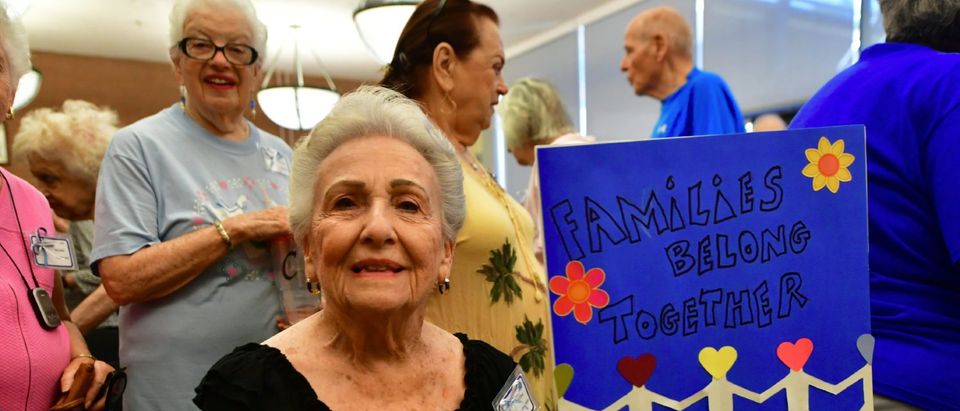Research commissioned by The Atlantic Magazine shows that older white liberals may just be the most politically intolerant group in the country.
The article by Amanda Ripley, Rekha Tenjarla and Angela Y. He, published Monday and titled “The Geography of Partisan Prejudice,” utilized polling and analytics firm PredictWise to “create a ranking of counties in the U.S. based on partisan prejudice.”
While its findings showed “significant variations in Americans’ political ill will from place to place, regardless of party,” it also found that groups the authors expected to display partisan animosity, such as immigrants, paled in comparison to “the most politically intolerant Americans,” who “tend to be whiter, more highly educated, older, more urban, and more partisan themselves.”
While the piece did not explicitly label this group as “liberal,” several indications bear this out, such as the “highly educated” description (54 percent of college graduates at least lean Democratic), the fact that the vast majority of “urban” voters tend to be Democrats, and the known political leanings of the areas the research itself draws from, such as Massachusetts. (RELATED: E.W. Jackson Brings Down The House At ‘BLEXIT’ Rally)
From the article:
We see this dynamic in the heat map. In some parts of the country, including swaths of North Carolina and upstate New York, people still seem to give their fellow Americans the benefit of the doubt, even when they disagree. In other places, including much of Massachusetts and Florida, people appear to have far less tolerance for political difference. They may be quicker to assume the worst about their political counterparts, on average.
Nationwide, if we disregard the smallest counties (which may be hard to pin down statistically, since they have fewer than 100,000 people), the most politically intolerant county in America appears to be Suffolk County, Massachusetts, which includes the city of Boston. In this part of the country, nine out of every 10 couples appear to share the same partisan leaning, according to the voter-file data. Eight out of every 10 neighborhoods are politically homogeneous. This means that people in Boston may have fewer “cross-cutting relationships,” as researchers put it. It is a very urban county with a relatively high education level. All these things tend to correlate with partisan prejudice.
The piece contrasts that with other areas, such as several parts of North Carolina and upstate New York, where people seem to be “more accepting of political differences.”
“In these places, you are more likely to have neighbors who think differently than you do,” the authors write. “You are also more likely to be married to someone from the other side of the aisle. It’s harder to caricature someone whom you know to be a complicated person.”


